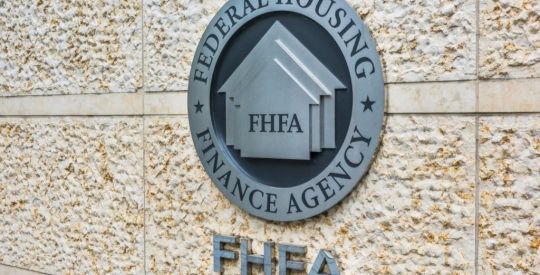The Federal Housing Finance Agency could raise guarantee fees Fannie Mae and Freddie Mac charge lenders beginning this month by between 7 and 8 basis points, according to analyst estimates.
The agency is expected to make its announcement this month. Last year, the FHFA said it would begin gradually increasing the fees in order to allow private capital to return to housing finance.
A tax cut law enacted by Congress in December specifically required the average g-fee charged for 2012 originations financed by the government-sponsored enterprises be at least 10 bps higher in order to pay for the cuts. With no increases done in the first three months of the year, the upcoming raise will have to be nearly as steep as the initial 10 bps increase in April.
“There should be increases of between 7 to 8 bps by the end of August to make the average 10 bps higher for the end of the year,” said Matthew Jozoff, a securities analyst at JPMorgan Chase (JPM) during a conference call with investors Tuesday.
His colleague Brian Ye added that if it comes in less, there would be further hikes by the end of the year.
“We will know by the end of the month. If one assumes they will immediately do a catch-up effective for September, we could anticipate a 7.5 bps increase just to bring it into law. If they lead us out again, you could see sharper increases later,” Ye said.
Laurie Goodman, chief analyst at Amherst Securities, said the g-fee increase would also ensure the two mortgage giants are profitable going forward. This would match up well with the Treasury Department adjustment to the bailout terms last week, which requires all profits to be swept back to taxpayers even as their retained portfolio reductions are accelerated.
FHFA Acting Director Edward DeMarco said in a July letter that the increase would come in August and take effect “late in the year.”
“This action would help cushion any future losses, and would hence represent a risk-management technique,” Goodman said in a note this week. “At that point, the guarantee fees on new origination (which has averaged a 762 FICO, 67% LTV since 2009) combined with portfolio profits will more than exceed losses on the legacy book of business.”
Goldman Sachs (GS) analysts said increasing the fees would be unlikely to drive the least risky borrowers, given the still dominant market share both GSEs hold. But as Congress continues efforts to strike a government spending agreement by the end of the year in order to avoid the so-called “fiscal cliffs” of deep cuts, sharper g-fee increases could come into play.
This, the Goldman analysts said, could put already constricted mortgage insurers at risk.
“The upcoming fiscal debates in Congress also raise the possibility that lawmakers will once again use the projected federal savings from an increase in minimum guarantee fees to offset the cost of other policies,” according to Goldman. “If the administration wishes to preserve the existing MI industry, then, they may be reluctant to increase GSE guarantee fees to the point where GSE loans with MI can no longer be a best-execution option for borrowers.”





